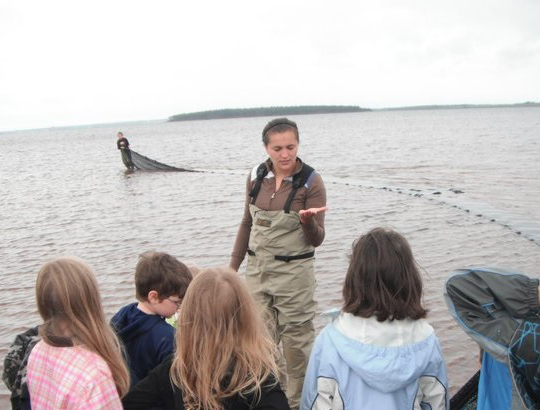Youth Water Education and Monitoring Project
Organization: Bedeque Bay Environmental Management association (BBEMA)
Location:
Province of Prince Edward Island—all urban, rural communities and municipalities
Country: Canada

Background
It is in general recognized that the quality of both drinking water and water in aquatic ecosystems in Prince Edward Island has deteriorated over the past three decades. The present situation did not occur overnight but became incrementally worse as agricultural practices became more and more intense, and housing development increased. It is important to appreciate that while Prince Edward Island is the smallest province in Canada it is also the most densely populated per square kilometer. The total dependence of its inhabitants on groundwater for their source of drinking water has made protecting all Island water sources a social priority.
Goals
Through the project, BBEMA will be assisting local community members (students, parents, landowners, educators) to learn and implement water and fish habitat monitoring protocols. Through educational workshops, biological field sampling and additional project activities, BBEMA will work to increase understanding of the importance of Prince Edward Island’s aquatic ecosystems. Encouraging community members to actively participate in aquatic ecosystem monitoring activities will help to raise overall community awareness of environmental issues and encourage individuals to take action to protect natural habitats.
Main Activities
Through the Youth Water Education and Monitoring Project, BBEMA will be assisting local community members (students, parents, landowners, educators) to learn and implement water and fish habitat monitoring protocols, through: educational workshops, biological field sampling, and water chemistry analysis in stream and lab. Community members will be engaged in understanding of the importance of Prince Edward Island’s aquatic ecosystems, and encouraged to actively participate in aquatic ecosystem conservation and restoration initiatives.
Results
A vital component of this project is the creation of environmental educational opportunities among local schools/youth, area landowners and local community groups. The results will be a monitoring program based on a common water quality protocol, and the resource of an increased volunteer base to help protect Island aquatic ecosystems (rivers, estuaries) province wide.